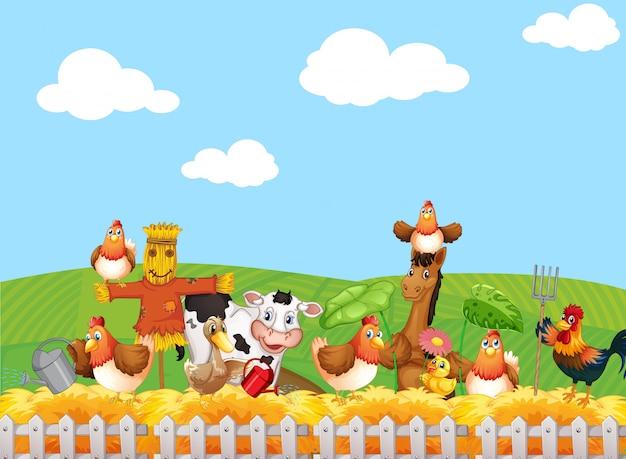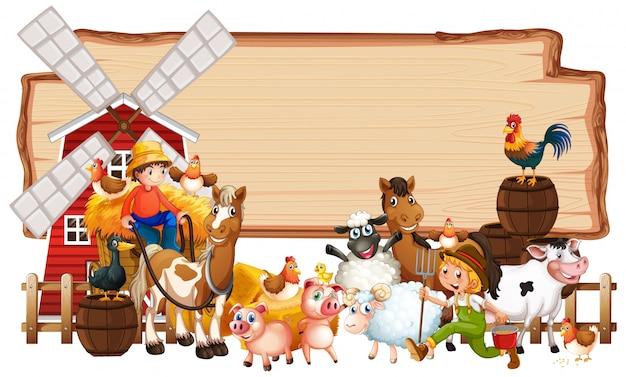Ever heard of Animal Farm? If you haven’t, you’re in for a treat! George Orwell’s classic novella, first published in 1945, may seem like a simple farmyard tale, but it holds a powerful and enduring message. Despite being almost eight decades old, Animal Farm’s relevance in today’s world remains astonishingly strong. But why is that?
Animal Farm teaches us valuable lessons about politics, power, and corruption that still ring true in the 21st century. Orwell’s allegorical masterpiece cleverly uses a group of farm animals to depict the rise and fall of a totalitarian regime. Its deeper meanings and universal themes make it a must-read for anyone seeking to understand the complexities of society and human nature.
So buckle up and join us as we explore why Animal Farm endures, the moral lessons it imparts, and the shocking truths that unfold throughout the story. Let’s delve into the captivating world of Animal Farm and discover why it remains as relevant today as it was when it first shocked readers way back in 1945.

Why Animal Farm Still Matters Today
The Influence of Animal Farm on Modern Society
Animal Farm, George Orwell’s timeless allegorical novel, continues to resonate with readers today. Written in 1945, the book tells the story of a group of farm animals who overthrow their human oppressors and create a socialist system that gradually transforms into a totalitarian regime. While the novel is often studied for its historical and political undertones, its relevance extends far beyond its initial context. Let’s explore why Animal Farm remains a profound commentary on contemporary society.
Unveiling the Dangers of Totalitarianism
Animal Farm serves as a powerful warning against the dangers of totalitarianism, which can manifest in a variety of forms even in modern times. This cautionary tale reminds us of the potential for power to corrupt and oppress. Orwell’s portrayal of the pigs’ manipulation and abuse of authority showcases the insidious nature of totalitarian regimes and serves as a call to remain vigilant in the face of threats to democracy.
Illuminating the Dynamics of Social Class
Animal Farm also highlights the persistent issue of social inequality and the exploitation of the working class. The novel demonstrates how power can disproportionately concentrate in the hands of a few, leading to the subjugation and manipulation of the masses. Orwell’s astute observation of the dynamics between the ruling class and the proletariat is as relevant today as it was when the book was first published.
Drawing Parallels with Modern Politics
One of the remarkable aspects of Animal Farm is its ability to resonate with various political climates throughout history. By employing animal characters and satirical elements, Orwell provides a universal framework through which readers can critique and reflect on their own societies. The allegorical nature of the novel allows for flexible interpretation and facilitates comparisons with contemporary political landscapes.
Satirizing Propaganda and Media Manipulation
Animal Farm exposes the perils of propaganda and media manipulation, shedding light on how language can be distorted to suppress the truth and control public opinion. In an era of “fake news” and information overload, the novel’s depiction of Squealer, the persuasive propagandist pig, raises important questions about the ethical use of language in politics and media.
Addressing the Danger of Blind Obedience
The theme of blind obedience permeates Animal Farm and serves as a reminder of the importance of critical thinking and individual autonomy. The unquestioning loyalty of the animals towards the pigs and the dangers it poses mirrors instances in history where people have blindly followed charismatic leaders, often to their own detriment. Understanding these dangers is crucial for safeguarding democratic values.
Conclusion
In conclusion, Animal Farm’s enduring relevance lies in its ability to touch on universal topics such as totalitarianism, social inequality, propaganda, and blind obedience. By examining these themes, readers can gain a deeper understanding of the potential pitfalls society faces in the pursuit of power and control. As we navigate the complexities of the modern world, Animal Farm continues to remind us of the importance of remaining vigilant and united in the face of threats to freedom and democracy. So, pick up a copy of Animal Farm, and discover for yourself the enduring relevance of this literary masterpiece.
Reading time: 5 minutes

FAQ: Why is Animal Farm relevant today
In this FAQ-style blog post, we will explore the relevance of George Orwell’s classic novel, Animal Farm, in the 21st century. From its timeless themes to its political commentary, Animal Farm continues to captivate readers and offer valuable lessons. So, let’s dive into some commonly asked questions about why Animal Farm remains relevant today.
Why is Animal Farm relevant in the 21st century
Animal Farm tackles universal themes and issues that remain relevant in the 21st century. Its exploration of power, corruption, and manipulation resonates with modern-day readers who can draw parallels to real-world events and political systems. Just as the animals in the farm rebel against their oppressive leaders, people today continue to fight for justice, equality, and freedom.
What Animal Farm teaches us
Animal Farm serves as a cautionary tale about the dangers of totalitarianism and the abuse of power. It teaches us to question authority, be vigilant against propaganda, and understand that even seemingly well-intentioned revolutions can quickly devolve into tyranny. The novel reminds us of the importance of critical thinking and the need for a vigilant and informed citizenry.
Why was Animal Farm banned in America
Animal Farm’s publication faced controversy and censorship in America due to its critique of totalitarian regimes. The novel’s portrayal of the Soviet Union, and particularly Joseph Stalin, raised concerns during the tense political climate of the Cold War. Some deemed it too subversive or dangerous, leading to its banning in certain schools and communities. However, the attempt to censor Animal Farm only reinforced its significance and sparked further interest in the novel.
What was Boxer’s body sold for
After Boxer, the loyal and hardworking horse, tragically collapses due to overwork, the pigs sell his body to a glue factory for money. Despite Boxer’s unwavering commitment to the revolution, the pigs mercilessly exploit his devotion for their personal gain. This act serves as a stark reminder of the betrayal of those in power and the disposability of individuals in oppressive systems.
What is the moral lesson of Animal Farm
Animal Farm imparts a powerful moral lesson – that power corrupts and absolute power corrupts absolutely. Through the allegory of animal rebellion, Orwell exposes how individuals who seek power can manipulate and exploit others for their own gain. The novel serves as a reminder to be wary of those who promise utopia and to question their motives, actions, and the impact of their policies.
What happened to Jessie’s and Bluebell’s puppies
In Animal Farm, Jessie and Bluebell, two dogs on the farm, give birth to puppies. However, Napoleon, the main antagonist and leader pig, takes the puppies away to “educate” them in a secluded loft. Later, the puppies are revealed as Napoleon’s private security force, loyal only to him. This symbolizes the indoctrination and manipulation of the youth by authoritarian regimes – a chilling reflection of real-world tactics used to control and shape future generations.
Who Killed old major in Animal Farm
Old Major, the wise and respected boar who initially inspires the animals to rebel against their human oppressors, dies of natural causes before the revolution takes place. However, his ideas and principles live on as the animals establish Animal Farm. Old Major’s death symbolizes the passing of revolutionary ideals to the next generation and the inspiration that can persist even after the loss of a leader.
What happened at the end of Animal Farm
At the end of Animal Farm, the pigs, who have gradually transformed into the very beings they originally rebelled against, host a lavish dinner with neighboring humans. As the animals watch through the farmhouse window, they can no longer distinguish between the pigs and the humans. This chilling conclusion depicts how power can corrupt even those who initially fought against it, highlighting the cyclical nature of oppressive systems.
What really happens to Boxer after he collapses
After Boxer’s collapse, the pigs claim they are sending him to a veterinary hospital for treatment. However, the truth is far more sinister. Rather than receiving proper care, Boxer is sold to a glue factory, his immense strength and loyalty exploited for profit. This betrayal underscores how the ruling class in Animal Farm manipulates and sacrifices the working class to maintain their own power and luxury.
The timeless relevance of Animal Farm in the 21st century lies in its exploration of power dynamics, corruption, and the deceptive nature of authoritarian systems. By shedding light on these perpetual issues, Animal Farm encourages us to be vigilant, question authority, and actively engage in shaping a just and equitable society. So, dive into the world of Animal Farm and discover the lasting impact of Orwell’s thought-provoking masterpiece.
